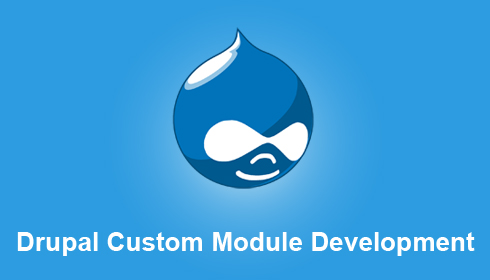Starting with a website concept, or a message board where people could share news and work status’ with a group of friends, Drupal today has gained a lot of popularity not just for building blogs and CMS (content management systems), but also for building more powerful social networking and ecommerce solutions. It’s a perfect blend of simplicity and complex functionality to make web development an easy task. Dries Buyer – the brain behind Drupal started developing this as a university experiment and later released it as an open source. Since its inception in 2000 as Drop.org and open source release in 2001 as Drupal, this CMS has seen great evolution and today it is the most widely used CMS and has a very strong community backing.
So, what caused this rapid progress? Why did the usage and popularity shoot up. What were the reasons for many businesses to turn towards Drupal to build their websites? Features – yes definitely, Drupal has a plethora of built in features that can support the simple to complex requirements of Drupal web development and robust Drupal 7 module development.
Without much ado, let’s dive straight into the reasons why Drupal is preferred.
The obvious reasons: Why Drupal? Reasons for its rapid evolution…
Drupal is open source. Its code can be modified by anyone. It’s free to download and free to use. There are no complex licensing schemes involved. Well, these are the pretty obvious reasons why developers made use of this powerful framework for Drupal module development and gave their customers excellent add on features for their websites.
Other than this, the second reason for the evolution of Drupal is its strong community backing. With over a decade of development, Drupal has a strong foundation to build upon. No wonder Drupal module development is also popular amongst developers. Drupal did rise to it’s current status since 2000 due to its highly flexible and scalable nature.
The less obvious reasons: Why Drupal appeals to businesses and Drupal developers
Clean, Extensible and modular code – Extending the functionalities of the code, many innovative modules can be written to add almost any functionality for the website. Businesses are empowered to add great features for their websites to gain an edge in the competition, and developers just love the ease of module creations using Drupal.
For a developer’s advantage, Drupal has built in caching that fosters high performance. Drupal also offers easy integration with third party applications SOAP, REST or JSON etc. (there are many more).
Drupal’s strongest features – Why Businesses are turning towards this CMS
Since Drupal offers SEO friendly features such as addition of Meta Tags, Page titles, Standards compliant, creation of SEO friendly URLs, even Google Analytics integration. Businesses today get a complete package when they select Drupal for their CMS requirements. Addition of features later on is just about getting the right developer for Drupal module development.
Drupal also offers unparalleled security features. Other than that, end users can easily update content without having to wait for a developer to do it for them.
Drupal gets appeal from a developer’s perspective as well as a businessman’s view. If you are looking for developing a module for your existing Drupal site or a website based on Drupal, you are at the right place and you have made the right choice!
Related Articles
-
Guide to Select the Best CMS for your Business
If your CMS is unable to manage or display content properly, even the best quality content and a well-planned content marketing strategy won’t deliver results. However, CMS cannot be changed
-
Possible Reasons To Choose The Best Drupal Developer For Your Website
Drupal over the recent years is one of the most acclaimed open source content management system throughout the world. With the growing popularity of Drupal Development the demand for efficient
-
Some Statistics – Some Basics – And – Just One Advice For Drupal Programmers
Some Statistics – stunning enough to make Drupal what it is today…. 2.1% of websites worldwide use Drupal as the backend framework – that’s the power of this content management



